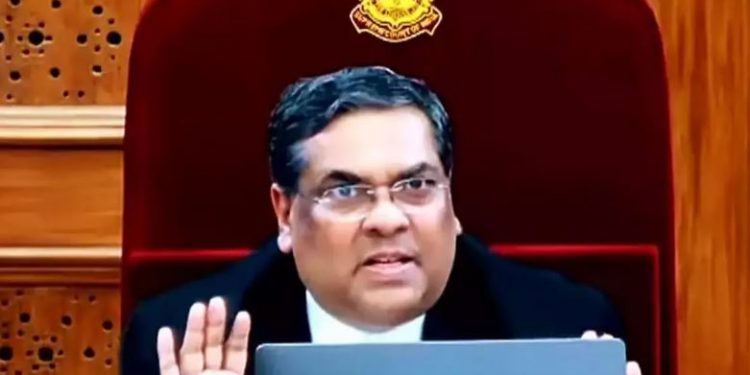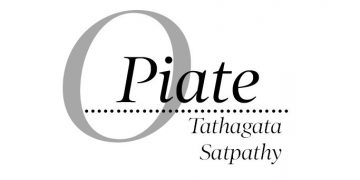New Delhi: Chief Justice of India Sanjiv Khanna Tuesday recused himself from hearing a batch of pleas challenging the exclusion of the CJI from the panel meant for selecting the chief election commissioner and election commissioners.
At the outset, the CJI, who was sitting on the bench with Justice Sanjay Kumar, told the advocates appearing for six separate petitioners that he couldn’t hear the pleas now.
“List the matter before a bench of which I am not a part of,” the CJI said.
Senior advocate Gopal Sankaranarayanan and lawyer Prashant Bhushan said the previous bench headed by Justice Khanna had issued the notice and passed interim orders in the matter and they had no objection if he continued hearing the matter.
Justice Khanna, who became the 51st CJI after former CJI D Y Chandrachud demitted office, said the cases would now be listed before another bench in the week commencing January 6, 2025.
Additionally, the bench instructed the union government and the Election Commission to file their responses to the raised challenges.
The bench, which issued notices on the pleas, had not agreed to the contention that the new law on appointment of the CEC and the ECs be stayed.
“Suspension of legislation pending consideration is an exception and not the rule,” it had said while dismissing pleas challenging the appointment of election commissioners under a 2023 law.
Interfering with the selection process would lead to “chaos and a virtual constitutional breakdown”, it noted.
The pleas have challenged the validity and sought a stay on the operation of Section 7 of the Chief Election Commissioner and other Election Commissioners Act, 2023, which excludes the CJI from the panel that picks the CEC and ECs.
The petitions questioned the constitutional validity of Sections 7 and 8 of the Act, which outline the process for appointing the Chief Election Commissioner (CEC) and Election Commissioners (ECs).
The 2023 Act introduced significant changes to the appointment process of election commissioners, replacing the earlier provisions of the Election Commission (Conditions of Service of Election Commissioners and Transaction of Business) Act, 1991.
The most contentious aspect of the new legislation is the exclusion of the CJI from the selection committee.
Instead, appointments are now made based on the recommendations of a three-member panel comprising the Prime Minister, a cabinet minister and the Leader of the Opposition or the leader of the largest opposition party in the Lok Sabha.
Section 8 of the Act further empowers the selection committee to regulate its own procedure transparently and allows consideration of candidates beyond those recommended by a search committee led by the union law minister.
The law has been challenged by several petitioners, including Congress leader Jaya Thakur, the Association for Democratic Reforms, the People’s Union for Civil Liberties, and Lok Prahari.
They said the Act undermined the independence and impartiality of the Election Commission, which is critical for ensuring free and fair elections.
The petitions also highlighted that the earlier system, established through judicial precedent, mandated the involvement of the CJI in the selection process to safeguard the institution’s autonomy.
The new legislation was enacted following a Supreme Court ruling that emphasised the necessity of insulating the appointment process for election commissioners from executive dominance.
The judgment prescribed the inclusion of the chief justice of India in the selection panel. However, the 2023 Act diverged from this recommendation, raising concerns about potential political interference.
PTI







































